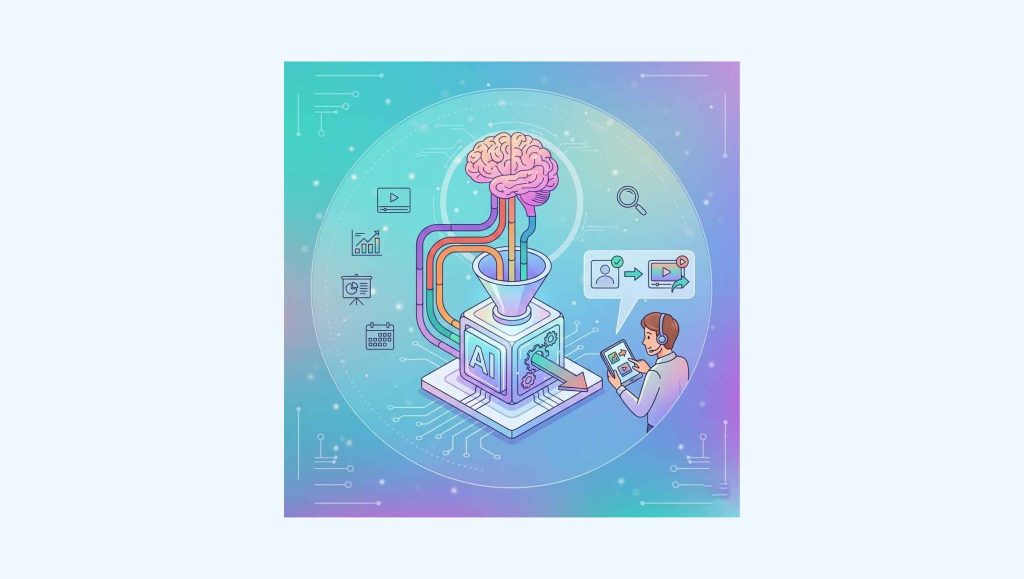The Importance of Balancing Human Touch and Machine Efficiency
Through sales automation, regular sales and ops tasks such as data entry, lead scoring, and email follow-ups can be done with ease and at scale; sales automation technology empowers sales teams to concentrate on high-impact activities like building deeper business relationships and closing deals. This shift is leading to the evolution of traditional sales and sales ops roles.
Sales automation eliminates the need for manual data handling and administrative tasks, allowing sales representatives to focus on strategic sales activities. As a result, roles involved in Sales Operations and Sales Enablement are becoming increasingly essential. These specialists focus on optimizing sales processes, analyzing data, and equipping sales teams with essential salestech and related tools and insights for constant success.
The rise of sales automation is fostering a more collaborative environment where sales and marketing teams work closely to streamline lead generation and nurturing processes, further blurring the lines between these departments that often worked separately.
Balancing Sales Automation with the Human Touch is Integral to Sales
While sales automation enhances efficiencies, the human touch remains a vital component of successful sales cycles. Customers still value personalized interactions, empathy, and the ability to connect with a sales representative who understands their unique needs. Striking the right balance between automation and personal interaction is key to retaining customer trust and loyalty.
For More Tips: The SalesStar Podcast
Episode 207: B2B Tech Marketing and B2B Tech Sales Alignment: with Eric Williamson, CMO at CallMiner
To maintain this balance, sales teams can use sales automation to handle routine tasks, such as scheduling meetings or sending initial follow-up emails, while reserving more complex interactions for human touchpoints. When it comes to enhancing that human touch, personalized video messages, tailored product recommendations, or direct phone calls can make a significant impact in building rapport with prospects. Sales automation should be seen as a tool that supports sales reps by freeing them from mundane tasks rather than replacing the personal connections that drive successful sales relationships.
Also Catch;
Episode 205 of The SalesStar Podcast: Driving Sales and Marketing Engagement with Video-Audio Outreach: Featuring Michael Litt, CEO at Vidyard
Read More: SalesTechStar Interview with Carly Crittenden, Head of Sales at Black Crow AI
Maintaining Personalization And The Human Element When Using Sales Automation: Best Practices
To leverage sales automation effectively without sacrificing the human touch, sales teams can implement several strategies:
1. Use Automation for Routine Tasks:
Automation can streamline time-consuming tasks like data entry, lead scoring, and email reminders. This approach allows sales representatives to focus on nurturing relationships and engaging in meaningful conversations with potential clients.
2. Personalize Automated Communications:
Even when using automated emails or messages, personalization is crucial. Incorporate customer data to tailor communications, such as addressing the recipient by name and referencing their specific needs or interests.
3. Segment Leads and Tailor Every Approache:
Leverage sales automation tools to categorize leads based on their behavior, preferences, and position in the sales funnel. By understanding where a prospect is in their journey, sales teams can tailor their interactions, ensuring that communications remain relevant and personalized, even when partially automated.
4. Implement AI for Enhanced Insights:
AI-powered analytics can offer sales teams valuable insights into customer behavior and preferences, facilitating more targeted and customized approaches. For instance, predictive analytics can recommend optimal times to contact prospects or suggest personalized content that resonates with their interests.
The Role of AI in Enhancing Sales Efficiencies and Personalization
AI powered sales technologies play an important role in enhancing both the efficiency and personalization of every sales process. AI-driven chatbots, for example, can handle initial customer inquiries and provide instant responses, enhancing the customer experience. However, AI can also transfer complex queries to human sales reps when needed, ensuring that customers receive the personal attention they require.
AI-powered sales tools can process huge volumes of data to identify trends, forecast sales opportunities, and provide sales reps with actionable insights. These insights enable reps to tailor their pitches and communications, aligning with the customer’s specific needs and preferences. By using AI in a supportive role, sales teams can enhance their effectiveness without losing the personal touch that distinguishes them from fully automated systems.
Challenges of Over-Automation in Sales and How to Avoid Them
Over-reliance on automated processes can make interactions feel impersonal, leading to a disconnect between the sales team and the customer. To avoid these pitfalls, sales teams should be mindful of the following challenges:
1. Loss of Personal Connection:
Over-automated processes can result in a lack of personal connection with customers, making interactions feel robotic. Sales teams should prioritize human touchpoints in key moments of the customer journey, such as during negotiations or when addressing specific customer concerns.
2. Reduced Flexibility in Customer Engagement:
Automation can sometimes lead to rigid processes that lack the flexibility to adapt to unique customer needs. Sales teams should ensure that automated systems have the capacity to hand off to human reps when the situation calls for a more nuanced approach.
3. Dependence on Data Quality:
Sales automation relies heavily on data, and inaccuracies can lead to misguided actions. Sales teams must regularly review and clean their data to ensure that automation systems operate effectively and provide the right recommendations.
Conclusion
Sales automation is reshaping the dynamics of sales teams by streamlining processes, enhancing efficiency, and allowing for more strategic human interactions. However, balancing machine efficiency with the human touch is essential to maintaining personal connections that drive sales success. By strategically integrating automation while prioritizing personalization, sales teams can leverage technology to their advantage, creating a customer-centric approach that meets the evolving demands of the modern sales landscape.





















